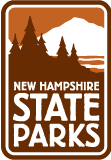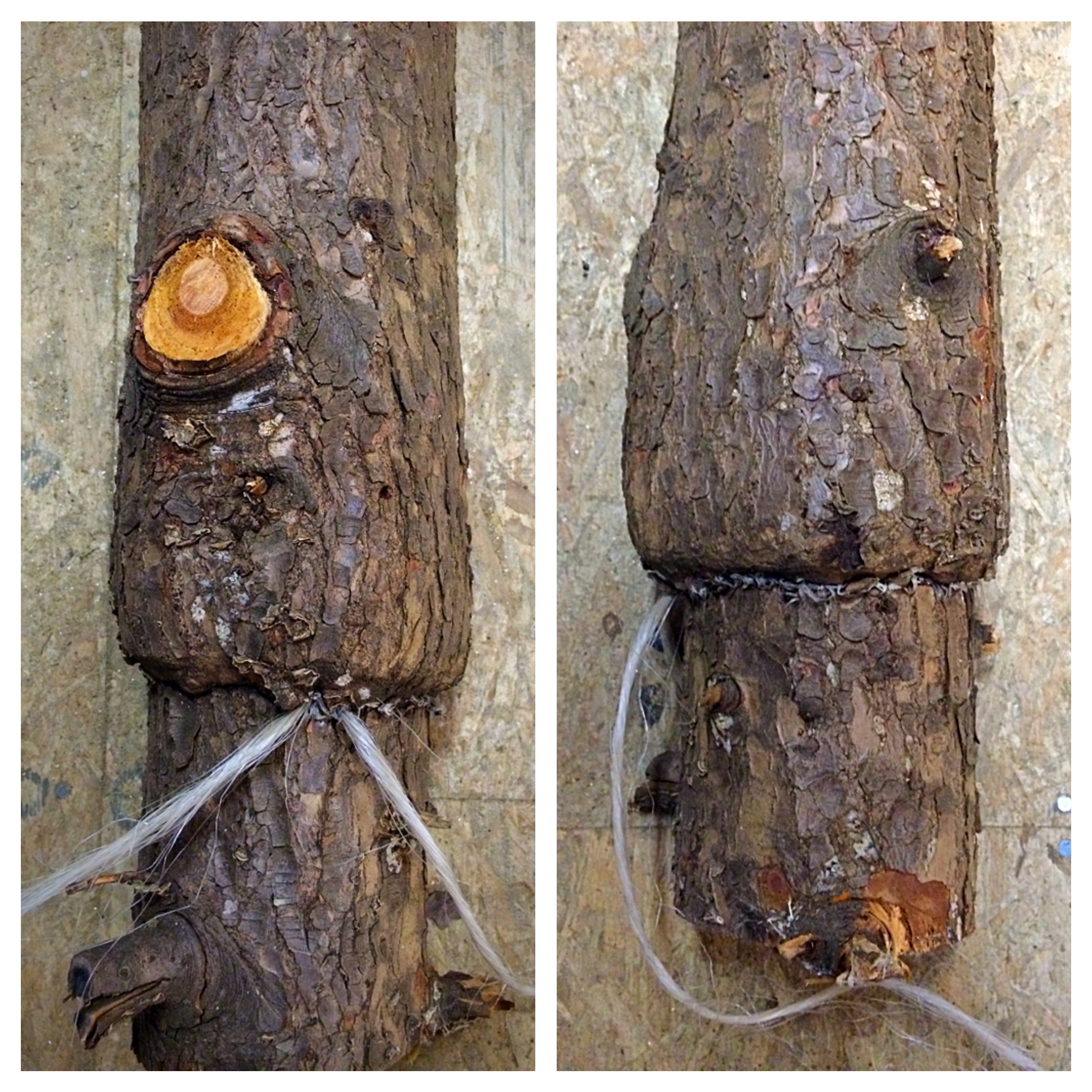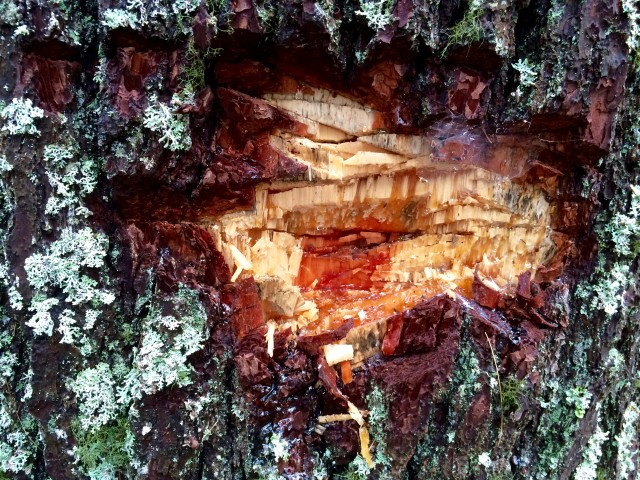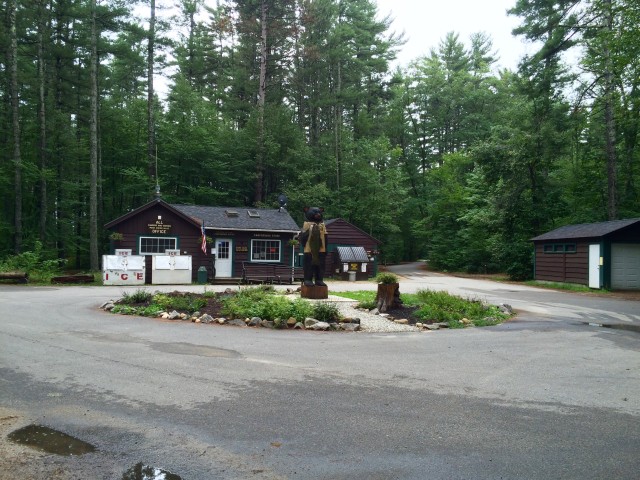
The amenities of Bear Brook State Park that are spread across its 10,000 acres attract mountain bikers, campers, hikers, anglers, and families who seek varying degrees of adventure and relaxation. With thousands of visitors each year, Bear Brook sees many faces and supplies the ingredients for fun and memorable visits to each of those visitors. However, the resources in the park wouldn’t be as enjoyable if the past visitors hadn’t taken some care and responsibility to leave Bear Brook better than they found it (in addition to the hours of work made by NH State Park’s employees!).
A fun and exciting way to challenge yourself and to enhance your trip to Bear Brook is to practice Leave No Trace outdoor ethics. There are 7 Leave No Trace principles (with examples of each) that visitors can educate themselves with before heading outdoors, then practice them during their trip, and inspire others to do the same:
- Plan Ahead and Prepare
- Repackage food to minimize waste, wash clothing if you’ve been traveling in areas that may have invasive species as not to spread them, prepare for hazardous weather, and schedule your trip to avoid times of high-use.
- Travel and Camp on Durable Surfaces
- Durable surfaces include established trails and campsites, rock, gravel, dry grass, and snow. In Bear Brook’s campground: concentrate use on existing trails and campsites, walk single file down a trail, even through mud or puddles, and camp at least 200 ft. away from lakes and streams.
- Dispose of Waste Properly
- Pack it in, pack it out. Inspect campsite for trash, food debris, and litter before leaving. To leave Bear Brook nicer than when we found it, always try to pick up at least one piece of trash that’s not yours during your stay.
- Leave What You Find
- Leave rocks, plants, and other natural objects as you found them. If everyone had the mindset of, “I’ll just take one, there’s plenty for everyone else to look at,” then there would be depleted resources everywhere. Do not build structures, furniture, or dig trenches.
- Minimize Campfire Impacts
- Use established fire ring and only burn firewood from New Hampshire (As out-of-state firewood could be a major carrier of invasive insects and tree diseases). Build small fires, so that all the wood is contained within the fire ring.
- Respect Wildlife
- Do not feed wildlife seen around Bear Brook. They can become so dependent on humans for food that their health and behavior can alter to the point where they forget how to hunt naturally, and encourage them to nest around and travel across the roads which can lead to deaths. Securely put food away at night as not to entice animals into your campsite, for your safety and theirs. Pets must be controlled at all times.
- Be Considerate of Other Visitors
- Respect other visitors and the quality of their experience, yield to others on the trail, and avoid loud voices and noises so that others may enjoy nature’s many sounds.
Details of these principles and other interesting information can be found at https://lnt.org/learn/7-principles.
As the camping season is winding down, I can attest that the majority of campers generally adhere to the Leave No Trace principles, whether they’re aware of them or not. However, there have been some traces that I have seen that I would like to share to hopefully inspire future park visitors to always be a mindful Earth steward in their adventures.
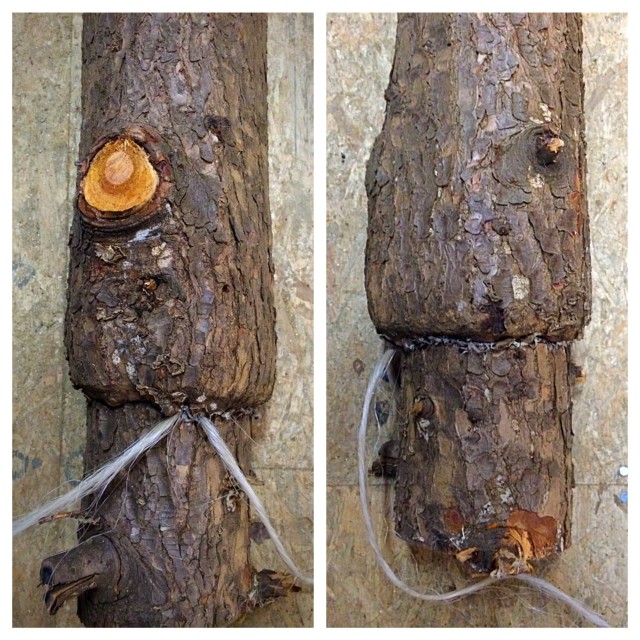
During the course of a camping trip, it might be necessary to tie some string/rope around a tree to help support a tarp, lantern, or hang between another tree to drape wet towels over. When rope or twine is left tied around a tree it can suffocate the tree like the tree in the photo above. Trees absorb water from the ground through their roots and sends it up the trunk out it to it’s foliage. During photosynthesis, sugars are made and are shared with the rest of the tree by being sent down the trunk. In this tree’s (above) unfortunate case, though, the sugar couldn’t get past the twine so it began collecting above the twine. Over time, the tree died from it’s inability to transfer nutrients throughout the tree.
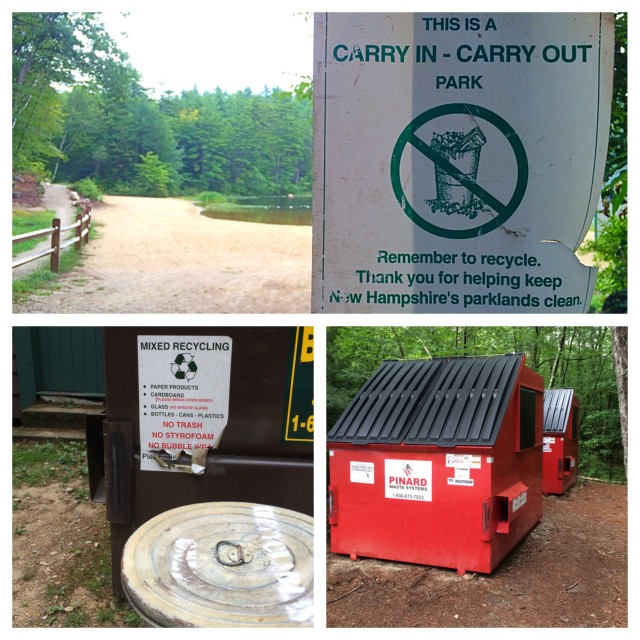
Bear Brook’s campground offers convenient recycling and trash disposal to campers so that everyone may enjoy clean and sanitary sites, bathrooms, playground areas, and beaches. The recycling receptacle is located directly outside of the store and the two red trash dumpster are adjacent to the bear statue right off of the main circle. Please take the time to sort out recyclables from trash so Bear Brook can support conservation as much as it can.
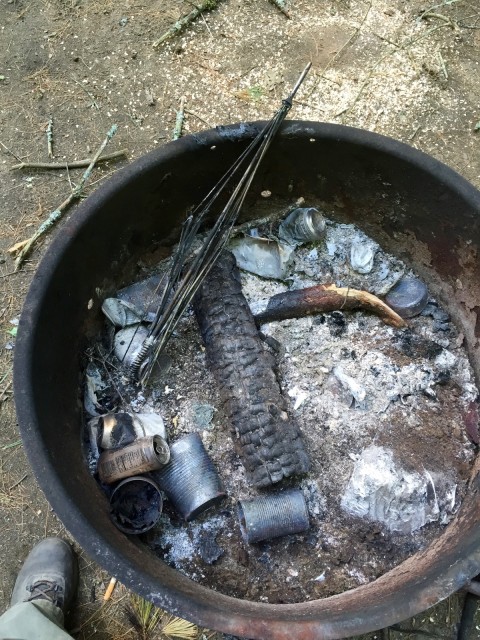
It might have seemed like an easier alternative to burn one’s trash as opposed to taking it to the dumpster in this particular campsite. It is stated in NH Parks and Rec’s Camping Policies that burning trash is prohibited (these Policies are found online and posted in the campground store). In addition, burning cans, bottles, and any other in-organic material can release toxins and un-natural debris into the air and surrounding area, which can be harmful to the forests, wildlife, and other campers.
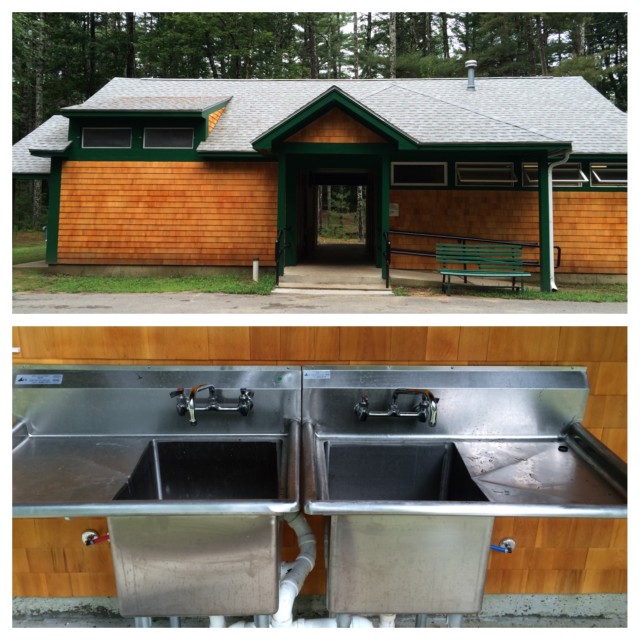
Located on the left hand side of the building in the top-half of the photo is the addition of these sinks that offer a simple and convenient way for campers to wash dishes. In the past, bathroom sinks have been clogged with food particles and dishes have been washed using the water spigots located throughout the campground. Washing dishes under the outdoor spigots leaves tiny food particles on the ground that will attract a variety of animal activity (porcupines are popular campsite visitors), as well as the soap may poison surrounding plants. But now not only will washing dishes be easier, it won’t leave a trace anywhere but the bottom of the sink!
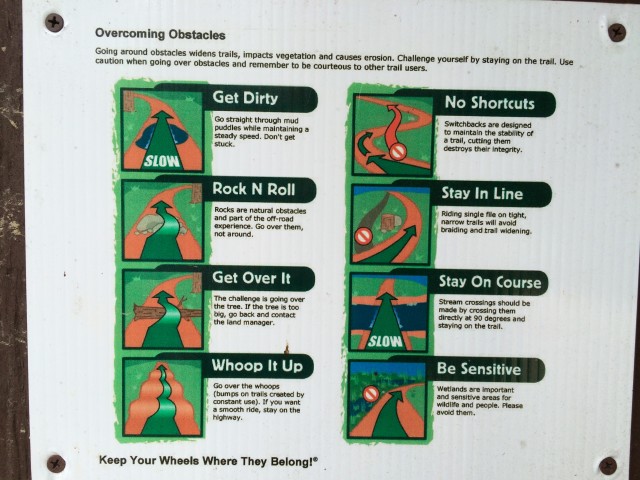
Nobody said Leave No Trace wasn’t fun! These helpful hints ensure a safer, more enjoyable ride for the hundreds of mountain bicyclists who seek out Bear Brook’s 40 miles of trails. When visitors adhere to these guidelines, they permit others to enjoy the ride just the same, if not more!
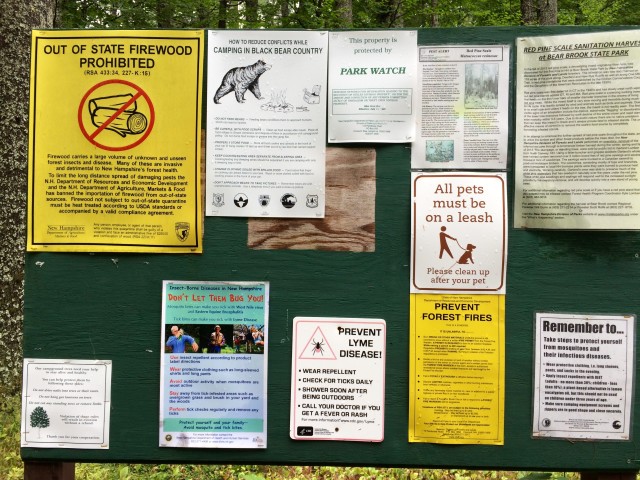
While it may seem like parks have a lot of rules and regulations, there are well thought-out and purposeful reasons behind each one of them. If you take a look at this information board found in Bear Brook’s campground, you’ll notice most of the posted notices reflect several of the Leave No Trace principles. Moving firewood can spread invasive insects such as the Red Pine Scale that can destroy trees, taking proper precautions with food can dissuade black bears from coming around the campground (if the noise doesn’t already!), pets must be on leashes so that you may be considerate of other visitors, respectful towards wildlife as well as protecting your pet from wildlife, and it’s always important that once you clean up after your pet, you dispose of waste properly. A trip to Bear Brook, no matter how long, always involves some planning and preparation, and there’s plenty of maintained recreational areas (durable surfaces) for you to enjoy. So just like that, you’ve practiced all 7 Leave No Trace principles! I hope you keep these in mind on your future adventures and never hesitate to educate if you see the opportunity!
- Plan Ahead and Prepare
- Travel and Camp on Durable Surfaces
- Dispose of Waste Properly
- Leave What You Find
- Minimize Campfire Impacts
- Respect Wildlife
- Be Considerate of Other Visitors
Just last month, a camper took an ax to this old and majestic white pine tree in his campsite, and left an open wound (he was immediately evicted). Let this inspire us to care for and respect the natural world around us at all times.
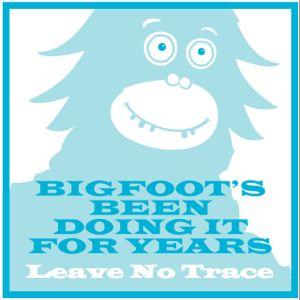
-Christie Conway, Interpretive Ranger at BBSP
